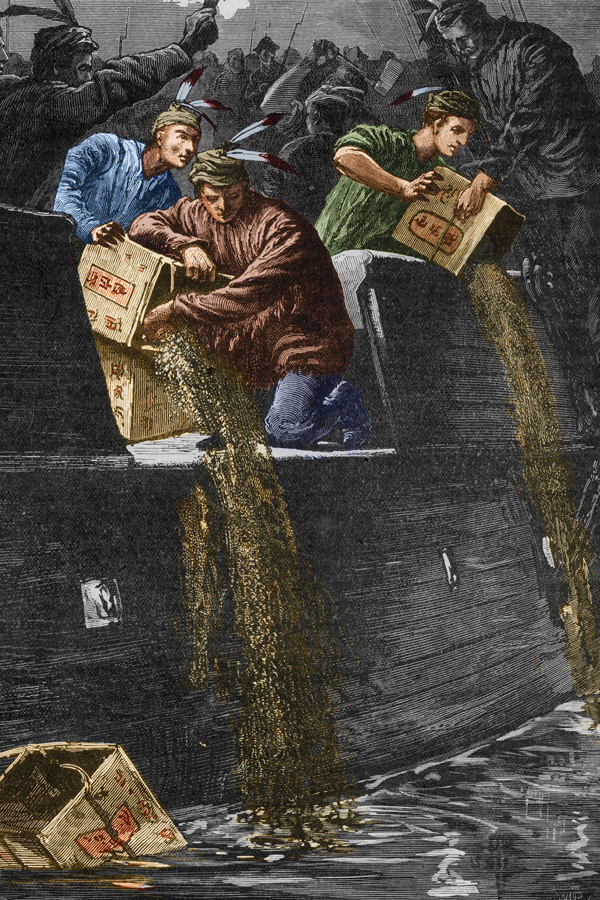
Date Created:
Place Created: Boston, MA
Year Created: 1773
Collection this Document is Affiliated with:
Description:
George Robert Twelve Hewes, a Boston shoemaker, participated in many of the key events of the Revolutionary crisis. Over half a century later, Hewes described his experiences to James Hawkes. When Parliament passed the Tea Act in 1773, colonists refused to allow cargoes of tea to be unloaded.
In the evening of December 16, with Hewes leading one group, the colonists dressed in “the costume of a Indian.” They boarded the ships in Boston harbor and dropped the tea overboard. Hewes’ account sheds light on how resistance became revolution. The “Boston Tea Party,” as it became known in the 19th century, became a powerful symbol of the Revolution. And Hewes, artisan and ordinary citizen, was celebrated as a venerable veteran of the struggle for Independence.
Categories of Documents:
“The tea destroyed was contained in three ships, lying near each other at what was called at that time Griffin's wharf, and were surrounded by armed ships of war, the commanders of which had publicly declared that if the rebels, as they were pleased to style the Bostonians, should not withdraw their opposition to the landing of the tea before a certain day, the 17th day of December, 1773, they should on that day force it on shore, under the cover of their cannon's mouth.
I immediately dressed myself in the costume of an Indian, equipped with a small hatchet, which I and my associates denominated the tomahawk, with which, and a club, after having painted my face and hands with coal dust in the shop of a blacksmith, I repaired to Griffin's wharf, where the ships lay that contained the tea.
When I first appeared in the street after being thus disguised, I fell in with many who were dressed, equipped and painted as I was, and who fell in with me and marched in order to the place of our destination. We were immediately ordered by the respective commanders to board all the ships at the same time, which we promptly obeyed.
The commander of the division to which I belonged, as soon as we were on board the ship appointed me boatswain, and ordered me to go to the captain and demand of him the keys to the hatches and a dozen candles. I made the demand accordingly, and the captain promptly replied, and delivered the articles; but requested me at the same time to do no damage to the ship or rigging. We then were ordered by our commander to open the hatches and take out all the chests of tea and throw them overboard, and we immediately proceeded to execute his orders, first cutting and splitting the chests with our tomahawks, so as thoroughly to expose them to the effects of the water.
In about three hours from the time we went on board, we had thus broken and thrown overboard every tea chest to be found in the ship, while those in the other ships were disposing of the tea in the same way, at the same time. We were surrounded bv British armed ships, but no attempt was made to resist us. During the time we were throwing the tea overboard, there were several attempts made by some of the citizens of Boston and its vicinity to carry off small quantities of it for their family use. To effect that object, they would watch their opportunity to snatch up a handful from the deck, where it became plentifully scattered, and put it into their pockets.
The next morning, after we had cleared the ships of the tea, it was discovered that very considerable quantities of it were floating upon the surface of the water; and to prevent the possibility of any of its being saved for use, a number of small boats were manned by sailors and citizens, who rowed them into those parts of the harbor wherever the tea was visible, and by beating it with oars and paddles so thoroughly drenched it as to render its entire destruction inevitable.”
Source: Boston Tea Party Historical Society

